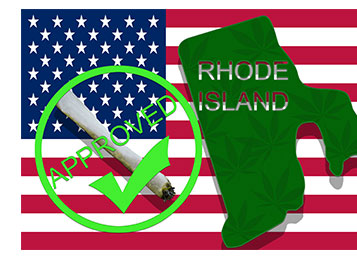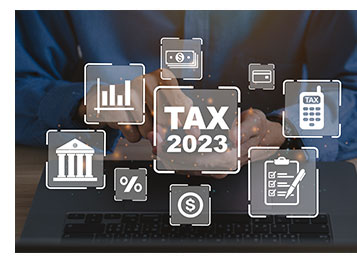 |
THIS ISSUE'S HEADLINES
The Votes Are In! What’s Next for the 25 RI Communities That Approved Cannabis Retail Sales?
Will There Be New Guidelines on Defining Employees vs. Independent Contractors?
Increase to Lifetime Federal Gift and Estate Tax Exemption Amount in 2023
Stay Informed — PLDO COVID-19 Resource Library

THE VOTES ARE IN! WHAT’S NEXT FOR THE 25 RI COMMUNITIES THAT APPROVED CANNABIS RETAIL SALES?
 Under the Rhode Island Cannabis Act that passed overwhelmingly in the House and Senate last May, municipalities that do not currently host a licensed medical cannabis treatment center were given the option to opt-out of allowing recreational cannabis businesses in their communities by putting the issue to vote during last week’s mid-term election. Under the Rhode Island Cannabis Act that passed overwhelmingly in the House and Senate last May, municipalities that do not currently host a licensed medical cannabis treatment center were given the option to opt-out of allowing recreational cannabis businesses in their communities by putting the issue to vote during last week’s mid-term election.
Voters in 31 cities and towns were asked the question: “Shall new cannabis related licenses for businesses involved in the cultivation, manufacture, laboratory testing and for the retail sale of adult recreational use cannabis be issued in the city (or town)?”
Residents in 25 communities approved (many by narrow margin) and six communities voted to ban cannabis-related businesses within their borders, which means they will not be eligible for any of the revenue derived from the new 3% local tax on recreational cannabis sales marijuana sales.
For the municipalities that approved the cannabis referendum, there are a still a slew of regulatory affairs to get in order before new licenses are issued. First and foremost, the newly re-elected Governor McKee has yet to establish the Cannabis Control Commission, the regulatory body that will accept, review and approve new licenses, inevitably causing a delay before the state selects and issues a new round of licenses. Not only does McKee need to make the appointments, but other regulatory measures, such as establishing an application structure and other final regulations, could potentially hold up the process.
PLDO Partner Benjamin L. Rackliffe, who leads the firm’s Cannabis Law Practice, discusses these issues and how they could impact businesses looking into break into the market in an Advisory, entitled: The Votes Are In! What’s Next for the 25 RI Communities That Approved Cannabis Retail Sales.
For questions pertaining to cannabis business and legal matters, please contact PLDO’s Cannabis Law Practice, led by Attorney Rackliffe, at 401-824-5183 or email brackliffe@pldolaw.com.
[back to top]

WILL THERE BE NEW GUIDELINES ON DEFINING EMPLOYEES VS. INDEPENDENT CONTRACTORS?
 For years, there has been a lack of concrete guidance and regulatory ambiguity around the classification of workers as either employees or independent contractors, which has resulted in misclassifications, whether inadvertently or otherwise, by both employers and employees. The issue has garnered more attention recently in the news, notably with respect to lawsuits filed by Uber and Lyft drivers claiming unfair/erroneous classification as independent contractors, and seeking the related benefits and protections traditionally afforded solely to formal employees. For years, there has been a lack of concrete guidance and regulatory ambiguity around the classification of workers as either employees or independent contractors, which has resulted in misclassifications, whether inadvertently or otherwise, by both employers and employees. The issue has garnered more attention recently in the news, notably with respect to lawsuits filed by Uber and Lyft drivers claiming unfair/erroneous classification as independent contractors, and seeking the related benefits and protections traditionally afforded solely to formal employees.
Last month, The Federal Register published a report about recent developments in the longstanding debate and questions about how employers may seek to classify “employees” versus “independent contractors” in the workforce. Titled “Employee or Independent Contractor Classification Under the Labor Standards Act,” the report from the U.S. Dept. of Labor (DOL)/Wage and Hour Division detailed the history of this long-troubling question, together with the DOL’s recent efforts and next proposed steps towards promulgating better rules and guidance for employers.
In an Advisory entitled, Will There Be New Guidelines on Defining Employees vs. Independent Contractors?, PLDO Partner Kas R. DeCarvalho provides important background information and key takeaways of the “Notice of Proposed Rulemaking.” For the time being, the existing rules (such as they are) haven’t changed from the standards applied in recent years, but employers are advised to be aware that a material change in the regulatory fabric appears to be on the way.
If you have questions pertaining to employee/contractor classification, please contact Attorney DeCarvalho at 401-824-5100 or email kd@pldolaw.com.
[back to top]

INCREASE TO LIFETIME FEDERAL GIFT AND ESTATE TAX EXEMPTION AMOUNT IN 2023
 The IRS has announced the Federal Estate and Gift Tax exemption amount (i.e., Applicable Exclusion Amount) for 2023 will increase from $12,060,000 to $12,920,000 for a single person ($24,120,000 to $25,840,000 for married couples). Assets more than $12,920,000 will be subject to a 40% gift tax for lifetime transfers and 40% estate tax for transfers at death. The IRS has announced the Federal Estate and Gift Tax exemption amount (i.e., Applicable Exclusion Amount) for 2023 will increase from $12,060,000 to $12,920,000 for a single person ($24,120,000 to $25,840,000 for married couples). Assets more than $12,920,000 will be subject to a 40% gift tax for lifetime transfers and 40% estate tax for transfers at death.
Applicable Exclusion Amount: The applicable exclusion amount (also known as unified credit) refers to the total gifts and estate transfers exempted from an individual’s gift and estate taxes. Every U.S. citizen has an applicable exclusion amount for all gifts made during life or estate transfers at death. Some gifts do not count towards the amount, such as gifts or bequests charity or paying someone’s medical or education expenses. The exclusion can be used entirely on one gift, used partially on gifts and partially on estate transfers, or used entirely on estates. A very contested area of tax law, this exclusion creates a significant exception to the approximately 40% federal gift and estate tax, and changes frequently.
History of Applicable Exclusion Amount: The amount has ranged from less than $1 million in 2000 to over $12 million in 2022. In 2011, Congress set the amount at $5 million, indexed for inflation annually. Prior to the effective date of the Tax Cuts and Jobs Act (“TCJA”), the Applicable Exclusion Amount for a single person was $5,490,000 ($10,980,000 for a married couple). The TCJA substantially increased the amount to $11,180,000 for a single person ($22,360,000 for married couples). Since the enactment of TCJA, the Applicable Exclusion Amount has risen slowly to the 2022 amount of $12,060,000 for a single person ($24,120,000 for married couples).
Increase for 2023: The high level of inflation has been a prevailing theme for much of 2022. Consequently, many expected a larger than normal increase of the Applicable Exclusion Amount. The expectation was confirmed with the IRS’s recent announcement that the 2023 amount for single persons will increase to $12,920,000 ($25,840,000 per married couple). This $860,000 increase ($1,720,000 per married couple) marks the highest annual increase in the estate tax exemption amount since the enactment of TCJA.
Focus on 2026: Absent a change in existing law, in 2026, the provisions of the TCJA are scheduled to sunset, and the exemption amount will automatically revert to the prior amount of $5 million, adjusted for inflation, or approximately $7 million. Moreover, Congress always can change the law any time in the future (i.e., reduce it back down) prior to 2026. Therefore, the increase for 2023 underscores an important opportunity for individuals and married couples that have completely used up their lifetime federal estate and gift tax exemption amounts. This presents taxpayers with a “use it or lose it” concern. The IRS has clarified that if any of the Applicable Exclusion Amount in excess of $5 million is used prior to 2026, a taxpayer will not lose his or her use of the higher exemption amount, irrespective of the amount at his or her death.
Planning Option for Family-Owned Businesses: One of the myriad planning techniques available for many owners of family businesses involves recapitalization of the business into voting and nonvoting interests by creating common and preferred shares or LLC units. The shares remain identical except for the right to vote. This type of recapitalization disentangles control from equity ownership. After the business is recapitalized, the nonvoting shares could be transferred via gift or sale. The nonvoting shares should qualify for discounts based on lack of control because the shareholders cannot vote on corporate matters. Discounts may also be available for lack of marketability, minority interest, and restrictions on disposition. By keeping the voting interests and transferring only nonvoting interests, the transferor can remove much of the company’s value and future appreciation from his or her taxable estate. Accordingly, such discounts enable current owners of the business to leverage use of their Applicable Exclusion Amount (i.e., when you use $1 of Applicable Exclusion Amount, you move more than $1 of assets out of your estate for Federal Estate and Gift Tax purposes). The business can be transferred to a child or a trust for the child’s benefit at a potentially substantial valuation discount.
For more information about Federal Estate and Gift Tax exemptions, please contact Attorney Jason P. Jones in PLDO’s Boca Raton, Florida office at 561-362-2030 or email jjones@pldolaw.com.
[back to top]

 STAY INFORMED – PLDO COVID-19 RESOURCE LIBRARY STAY INFORMED – PLDO COVID-19 RESOURCE LIBRARY
PLDO’s team of attorneys continue to add updates and advisories regarding the pandemic and its impact on families, businesses and organizations. To access our COVID-19 Resource Library, click here.
[back to top]
|
 |







